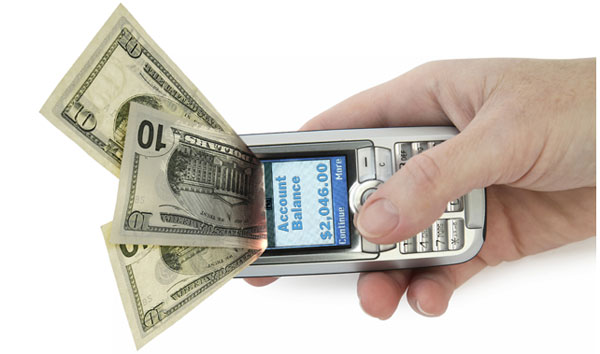
A recent study has found out that more than half of the consumers who pay for their purchases via smartphones do not prefer such services to be provided by their banks. Instead, they rely more on online payment services and providers such as PayPal Inc., Google Inc. and Apple Inc. Basically, consumer look for services that enable their smartphones to function as payment devices due to their obvious advantages over traditional banking services.
According to Peter Olynick – card and payments leader at Carlisle & Gallagher Consulting Group – banks are facing a threat because of the rapid advancements in technology that open new revenues for payments and other banking services. If the banking sector fails to keep up with the changing trends, its services would soon become obsolete. Mobile wallets have been identified as an emerging technology that is increasingly preferred by consumers nowadays. Olynick also said that out of all the consumers who prefer mobile wallets, almost 80% are keen on using banking services of PayPal in case they are provided to them.
Mobile wallets allow users to store and transfer money simply through a few clicks on a mobile phone. In other words, a mobile wallet is an electronic account which is accessible on a cell phone. The rising popularity of mobile wallets among consumers is attributed to the fact that they allow an easier and cost-effective way to make payments and transfer money.
Due to the changing technology and a rise in cell phone networks, banks experience a fall in their earnings that had been previously possible as a result of transferring money from buyers to sellers through debit and credit card networks. Companies have found new ways of transferring money through smart phones and latest technology that is efficient and cheaper as compared to conventional banking.
A survey carried out of more than 600 consumers reported that approximately 48% of them preferred mobile wallets and technology that would allow their smart phones and hand-held devices to function as banking and payment tools. Moreover, 53% reported as saying that they seek alternate solutions to their current primary banks.
Companies have acknowledged the threat to their survival from such changes in consumer preferences and continually evolving technology, which has alerted them to take an appropriate course of action. Consequently, a number of banks and technology companies are seeking mobile wallets for consumers either on their own or they are planning to commence partnerships for providing such services. In this regard, PayPal has made deals with 15 retailers, agreeing to provide services to consumers that would allow them to make payments through their mobile phones. Similarly, Google has also made several agreements with credit card companies to provide similar services to users.
Being one of the first companies to issue and place its credit cards in Isis mobile wallet, JPMorgan Chase & Co. has partnered with various mobile payment companies to maintain its foothold in the industry.
At this point, it is evident that if the banking industry fails to keep up with the current happenings and trends, it is likely to face substantial losses and a decrease in its customer base. Thus, collaboration with mobile payment networks in providing the latest services to consumers could go a long way in ensuring that the banking industry does not fall behind.

